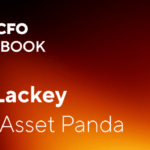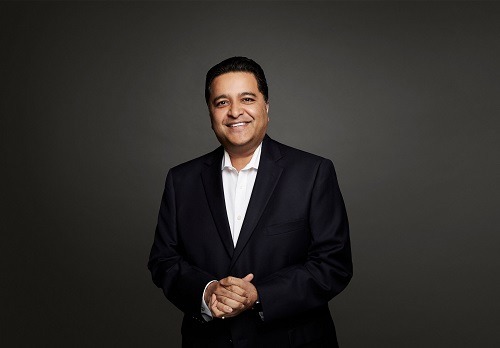5 Tips to elevate your role as CFO
Over the past few decades, the role of CFO changed drastically from being a highly technical role to one requiring holistic business knowledge.
According to Anup Singh, CFO at cybersecurity company Illumio, CFOs are the business partners that help companies succeed:
‘The CFO is really an architect trying to help that company achieve growth, achieve scale, and to do that you have to absolutely be in tune with the needs of the business.’
Recently, we interviewed Anup on The CFO Playbook podcast, where he shared his tips to become a true business partner for your company.
1. Leverage automation
Businesses today rely more and more on automation to keep up with the competition. And while we primarily think of IT teams when it comes to automation, the improvement of processes starts with the CFO.
As a CFO, you need to be aware of every aspect of your technological processes. Anup says,
‘It’s everything from the day-to-day automation of our business processes. So, how can we automate our quote-to-cash process, right? The purchasing process, the hiring process inside of your company. Automation is super key.’
By understanding every business process inside and out, you can help teams smooth out inefficiencies through automation.
2. Translate data into intelligence
Well-run businesses rely on a constant stream of up-to-date, real-time information on customers, products, and the overall market.
According to Anup:
‘You can only improve things if you’re able to track and measure them, and our job is to give the business intelligent information. So we take the data and we translate it into information. And this is intelligent information that we’re using to invest, and to drive allocation of resources across the company.’
It’s your job, as CFO, to translate data into intelligent information the business can use to make accurate decisions – think KPIs, competitor benchmarks, and other goal-driven insights.
3. Hire people smarter than you
If you were to ask Anup what the most important job he’s ever had is, he’d say building and leading great teams.
Anup’s goal isn’t to be the smartest person in the room, but to build the smartest team in the company.
Great leaders help employees maximize their potential in order to make the overall team more successful, Anup says:
‘If you hire A-players, you hire smart people, you probably don’t need to do a ton to motivate them because they are intrinsically driven and motivated. I think the coaching, mentoring, support, the removal of obstacles in their way to help them to be successful are all the things you can do as a leader.’
Coaching and developing great people happens when you become intentional about pushing individuals to grow and learn.
As a CFO, your team is your legacy. Build one you can look back on with pride.
4. Communicate transparently
Anup is a huge advocate for weekly one-on-one meetings with staff members, as well as department-wide meetings a couple of times per quarter. He also instituted a Slack channel called ‘CFO Ask Me Anything’, where he can interact with employees in an open and honest way.
For Anup, transparency and engagement are fundamental to a healthy workplace environment:
‘Having that transparency of culture in which you’re absolutely clear and open, and you’re saying it over and over, “Here are the key objectives. Here are the goals. These are the objectives we are striving for.” It builds alignment, and if you treat employees as adults, and you’re open and transparent and you have that trust, then a powerful culture is built there.’
When you are approachable and honest with your employees, you earn their trust and loyalty. Open yourself up to your team, and you will reap the rewards.
5. Balance IQ and EQ
The best CFOs are both intelligent and empathetic, which means they have a balance of IQ (technical intelligence) and EQ (emotional intelligence). While your technical skills are a given as CFO, your emotional maturity is a vital talent as well.
Anup explains:
‘I think the companies, the leaders, the individuals who are really successful are the ones who really understand the importance of EQ as well. And this is where having the high amount of awareness, having the ability to work in teams and lead teams, showing a lot of understanding, a lot of empathy – those are a lot of the attributes and characteristics of high EQ.’
Being an emotionally intelligent CFO is not about being a dynamic speaker or a boisterous leader, according to Anup. It’s about being sincere, listening to people, and ultimately building connections.
If you can connect with your team members on an emotional level, they will want to be part of your leadership journey for years to come.
Connect to grow
Being a business partner is all about connection – with employees, with investors, and with the business itself.
If you want to be a great leader and a great CFO, be involved in every aspect of your company. When you put time and energy into the people and programs around you, you will not only help them grow, but you yourself will grow to become an integral part of the business.
Sign up to The CFO Playbook Newsletter
Get extra insights from the podcast every Tuesday, to help you thrive in your business and career.







